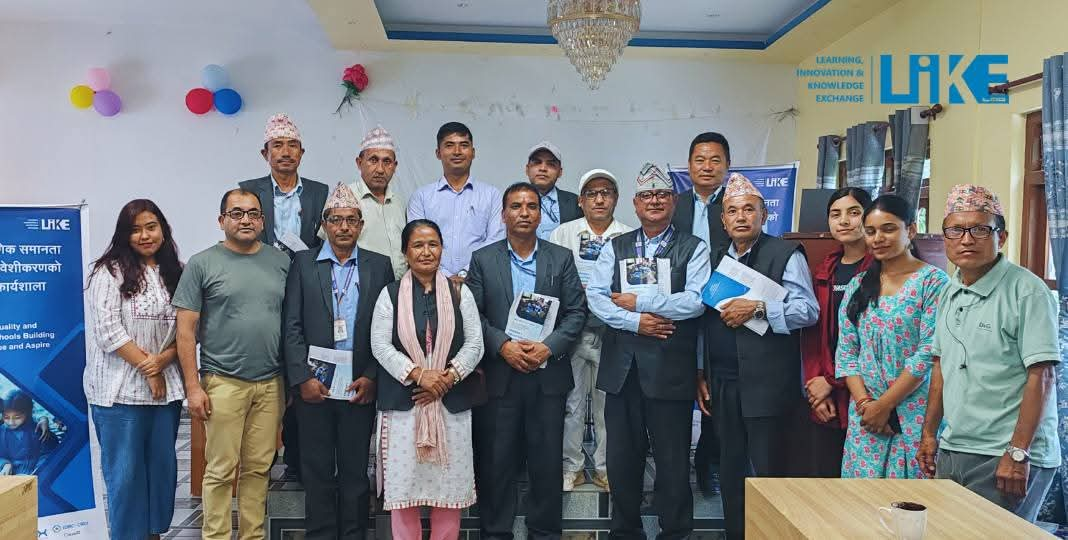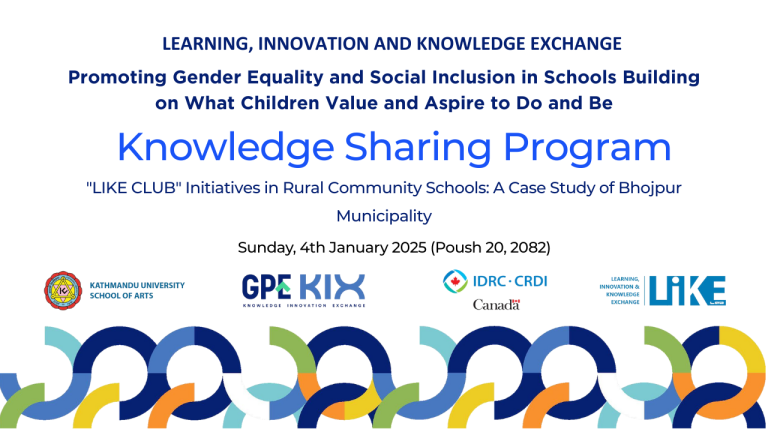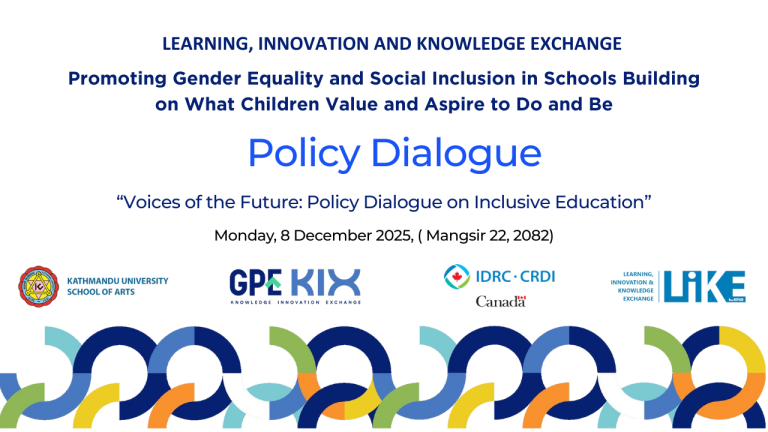
BHOJPUR, NEPAL, JUNE 11th, 2025 – The Learning, Innovation and Knowledge Exchange (LIKE) Lab at Kathmandu University School of Arts organized a capacity-building session for headteachers at Hotel Bhintuna, Bhojpur, under the theme “Strengthening Valued Educational Capabilities of Children.” The session brought together 18 participants, including 14 male and 4 female attendees, to deepen understanding of the LIKE Club, its vision, and the collaborative role of school leaders in advancing gender equality, social inclusion, and children’s well-being.
Community Mobilizer, Mr. Saurav Raj Bhandari welcomed attendees and introduced the goals of the session. Research Fellow, Ms. Isha Karki presented the CVEC project (Promoting Gender Equality and Social Inclusion in Schools, Building on What Children Value and Aspire to Do and Be), revisiting the project’s core values of Learning, Innovation, Knowledge, and Exchange.
Ms. Karki emphasized:
- The mission and vision of the LIKE Club to promote GESI and holistic child development.
- Activities rooted in the 16 capabilities identified by children in Nepal, Bhutan, and Bangladesh.
- The role of principals in mentoring the club, encouraging inclusive practices, and fostering community engagement.
An animated video on the 16 valued capabilities was screened to visually reinforce the project’s framework. Research Intern Ms. Utkrishta Sharma followed with a walkthrough of the Institutional Tracker, a tool to assess schools’ readiness to implement the LIKE Club. Headteachers were guided in completing the survey based on their school context.
Key Reflections from Headteachers
- Integration of Wellness Activities: Headteachers recommended incorporating yoga and wellness programming to support students’ mental and physical well-being.
- Concerns on Sustainability: Past experiences with child clubs have faced continuity issues. Participants questioned whether the LIKE Club would replace existing structures or be layered atop them. They urged for practical implementation guidance, particularly for rural schools lacking administrative clarity.
- Financial Sustainability: Some headteachers raised the idea of collecting a small fee (e.g., Rs. 10–15) from students to support club activities but also acknowledged prior failures of such models. They expressed concern over lack of school funds and minimal parental financial contribution to extracurricular activities.
In response, Principal Investigator, Dr. Binayak Krishna Thapa assured that LIKE Lab is exploring alternative sustainability models, including certification and awards for participation. While a financial model is under development, the team aims to support long-term engagement through non-monetary incentives and community collaboration.



